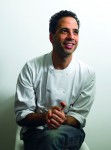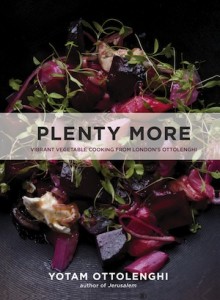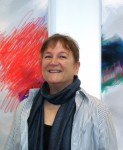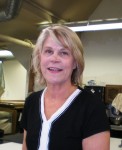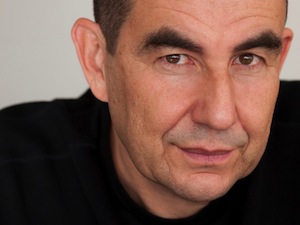Julia Glushko and Liran Kling at last year’s U.S. Open. (photo from Liran Kling)
Israeli tennis coach Liran Kling now calls Vancouver home. He moved here after being invited to do so by Canada’s No. 2 female tennis seed, Sharon Fichman.
Kling, 33, has played and coached tennis since he was a kid.
Born in Ramat Gan, he was one of the top junior players in Israel. After three years of army service, he attended College of Charleston in the United States on a tennis scholarship and then began coaching, in 2006, staying on for two years at the college before returning to Israel.
In 2010, Kling began coaching one of Israel’s promising young female players, Julia Glushko. Over four years, Kling helped Glushko become Israel’s No. 1 seed, a ranking she shares off and on with fellow tennis star, Shahar Peer.
After the 2014 Australian Open, however, Kling and Glushko parted ways. “It was a great experience for both of us,” said Kling of their time together. “We achieved a lot in the four years we worked together. There was just a mutual feeling that our partnership had run its course and we both felt it was time for a change. Julia is a great player and I wish her all the best in the future.”
Moving to Vancouver
“When I stopped working with Julia, Sharon contacted me to see if I was interested in coming to work with her and her team in Vancouver,” said Kling.
“Sharon is Canada’s No. 2 player, after Eugenie Bouchard. She is ranked 127 in the world in singles and 90 in doubles. Her somewhat low ranking is due to the fact that she is coming back from knee surgery and, in the past, she had a number of wins against top 50 players, so we know she has the potential to do that and more.”
About working with Fichman, Kling said, “We believe she can be ranked among the top of women tennis.” He added, “Our Israeli background helps us find common ground and to develop a strong working partnership.”
Fichman was born in Toronto to Israeli parents and has an older brother who was born in Israel. She began playing tennis at age 5 and, at 13, became the youngest player to win Canadian nationals for girls 18 and under. Later, at 14, she became the youngest player in Canadian history to play on the Canadian Federation Cup team.
Before becoming a professional, Fichman was ranked as high as No. 5 in the world for girls 18 and under, winning the Australian Open and Roland Garros titles in doubles, and reaching the quarter finals in singles of two grand slams. As a professional, her career high ranking to date has been 77th in the world in singles and 48th in world doubles.
Fichman competed in the 2005 Maccabiah Games for Canada and won the gold medal in the women’s open singles event. She was the flag bearer for the Canadian Maccabiah Team.
“The Canadian Tennis Federation has been very supportive of me and my tennis career and I am proud to play for Canada,” said Fichman.
Kling and Fichman first met on the Women’s Tennis Association tour, when Kling was still Glushko’s coach. When Fichman began looking for someone to join her team in Vancouver, she said Kling was her first choice. “The fact that he is Israeli is simply a bonus,” she said.
“He is very observant and has a great eye for the game of tennis,” said Fichman about Kling. “As a former player himself, he understands what it takes to be successful as a professional tennis player, so I take a lot of confidence in his input and feedback on and off of the tennis court.”
Both Fichman and Kling are new to Vancouver. Fichman said both she and Kling “would like to be better introduced to the Vancouver Jewish community,” while Kling said, “I’m enjoying my time here…. As far as the winter season goes, I was told to bring an umbrella. I look forward to learning how to ski this winter.”
The two are working out of a tennis centre in Surrey.
Rebeca Kuropatwa is a Winnipeg freelance writer.


